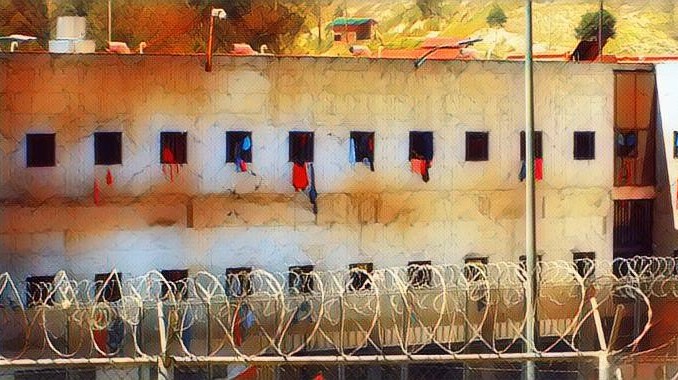
The Ambato prison is one of the most affected rehabilitation centers.
The Rehabilitation Service (SNAI) details that 699 people deprived of liberty (PPL) have been infected in Ecuadorian prisons since the start of the pandemic. 10 of them have died with coronavirus and another 11 with suspicion.
The rest of the prison population, which until June 17 numbered 37,700 people, is stable and most of those infected await medical discharge through a second test to confirm that the virus has disappeared.
Prisoners call for more action to prevent the spread of covid-19 in jails.
“I am Marco, I am 70 years old, I am diabetic and hypertensive; there are no medicines, ”claims an inmate, from his cell located in the Cotopaxi regional prison. The images where he appears were broadcast on social networks. The recording shows other inmates in their orange uniforms and with masks made of cloth. They also request speed in their procedures to be released.
The groups of the Alliance for Human Rights underscore the lack of financial resources to serve prisoners as another factor that worsens their situation.
«There is no budget allocated specifically for the emergency.»
According to the Public Procurement portal, SNAI has made three purchases of supplies to attend to the emergency. These total USD 23 408. The entity has purchased 1,678 masks, 661 gallons of antiseptic gel and 1,092 boxes (of 50 pairs) of disposable gloves.
In the service protocol, it is said that SNAI requested the necessary supplies from the Ministry of Health since February 29. In that same document, on page 14, it is indicated that one of the preventive measures is the widespread use of masks and gel. «The maximum authority of the penitentiary center must provide and deliver masks and disinfectants, for which it will coordinate the endowment with public and private institutions that allow it to prevent the spread of covid-19,» he explained.
In centers such as Cotopaxi, inmates make their masks in the textile workshops that work there. In women’s wards, for example, signs of social distancing have been painted in common areas such as patios to prevent infection. (C.D.A.)
SOURCE: El Comercio


Be the first to comment